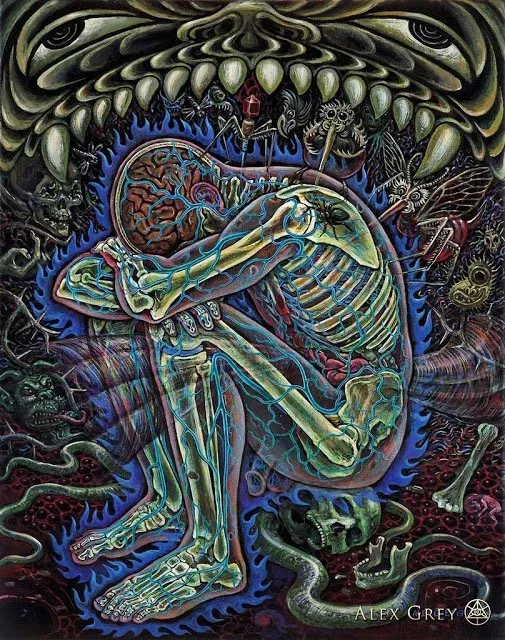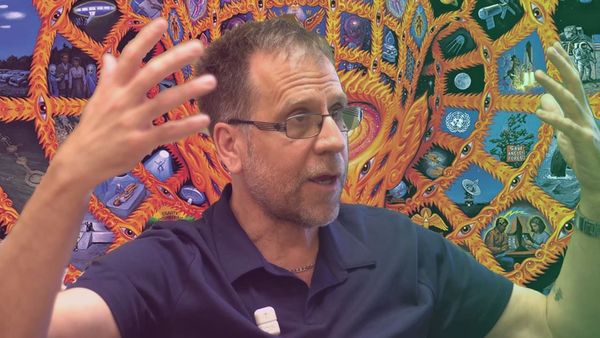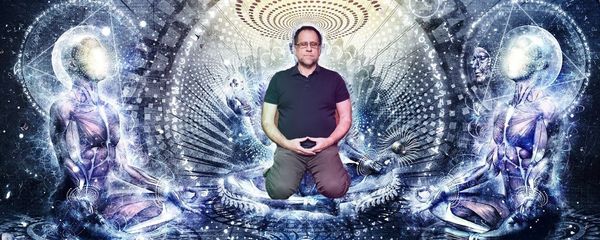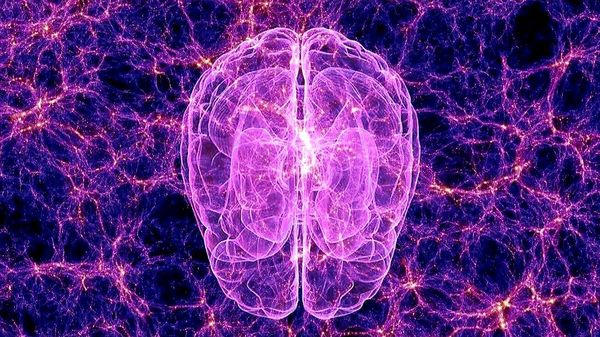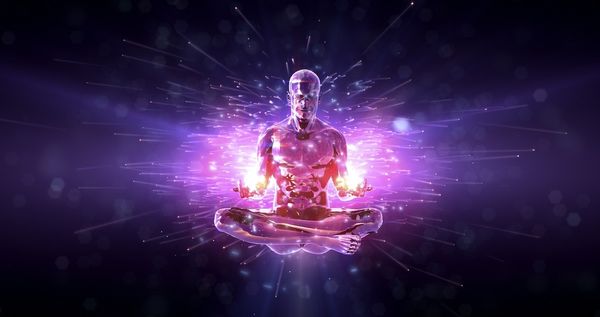Vironika Tugaleva • • 5 min read
The Love Mindset: Why Self Love Can Turn Your Inner Enemy Into A Lifelong Friend

This is an excerpt of the The Love Mindset (An Unconventional Guide to Healing and Happiness) written by Vironika Tugaleva.
We are never more discontented with others than when we are discontented with ourselves.
Henri Frederic Amiel
I used to think that other people could hurt me. I used to think, also, that other people could save me. Alone with my own self, life was unbearable. There was always a voice within screaming at me about my ugly body, my lack of charisma, my inadequacy as a female, as a daughter, as a human being. I found a few ways to drown the voice out. Every all-consuming self-modification project, such as a diet for example, consumed so much mind energy that I was distracted from my plight. Over time, however, the distraction factor would fade and I would respond by distracting even harder. And thus, the diet turned into an eating disorder. I followed this same process over and over, each time hoping that my new endeavour would be my final one; yet nothing would last. Time after time, the critic within would return. The longer the voices stayed absent, the more intensely they would return. Over this process, I felt no control.
About my relationship with myself, I had no insight or understanding. I just walked through life in fear of the tyranny that came from the inside of my head. The biggest problem was that I didn’t know it came from my own head. I thought that other people were causing me pain, when really they were just accidentally clicking “play” on already existing tapes inside my mind. My relationships with others became defined by their ability either to save me from my misery or to hurt me by perpetuating it. Everyone was either a prince or an attacker. I had to be the victim or the princess, the worshipped or the abandoned.
The excruciating, unbearable pain of my suffering was interrupted by one thing and one thing only. With my first ever lover, I found a treatment for my sorrow. His words and deeds brought me feelings I’d never felt before. He told me I was beautiful and interesting. He paid attention when I talked and he missed me when I was gone. At first, I was in pure ecstasy. Soon enough, I was hooked. Next to him, everything else took second place. Nothing else mattered. There was only me, him, and that feeling of cosmic connection. He was my gateway. He was my entry ticket into eternity. Around him, there was no longer any pain. There was only the bliss of feeling completely and utterly alive, connected, and accepted. We would lie together, embracing, and I would feel our bodies merging together as my skin washed top to bottom with utter bliss.
As for my pain, I thought it was all done with. Almost a year into our relationship, after I’d shared with him the intimate stories of my life to date, he said to me words I have never forgotten:
“People have treated you badly in the past,” he said, stroking my hair and embracing me, “And I’m going to do better. I’m going to treat you better.”
I remember thinking, right then and there, that it was the happiest moment of my life. And, for a long time, it really was. Another year later, the bliss remained. I was convinced that my darkness had died and that he had been my saviour. I thought I’d found the Prince Charming that so many women could only dream about.
After one more year, the fairy tale showed its true face. Soon enough, we grew up and moved in together. Real life took over. He worked long hours and I went to school. He wasn’t home very often and I spent many nights with myself. Without him there, I was alone with my mind – my self-loathing and self-deprecating mind. The thing about hating myself was that I didn’t realize that I was doing it. I didn’t know that everyone else didn’t talk to themselves like I did. I didn’t even realize I was talking to myself in any particular way. All I felt was the same old misery, the same old suffering. The moments without him became pure torture and, in my mind, it was all his fault.
“You don’t love me; you told me you’d do better,” I would hiss through tears and anger, throwing those words at him in a million different ways.
That was the part that really stung. He’d promised to do better and, now, he wasn’t. The more I blamed him, the more he fought back. He started drinking heavily. He started spending even less time at home. When he did come, our arguments escalated into some of the most violent confrontations of my life. Looking back, I see pure pain and pure blindness. I left him, indignant and bitter, feeling like I deserved better, like I’d been done wrong once again.
I entered my next relationship full of horror stories about my last one. He, too, promised me to do better. For a while, it was great, though definitely less powerful. By then, I was already somewhat guarded. This whole love thing wasn’t what it seemed, I thought. It was a beautiful rose complete with hidden thorns. Nevertheless, I believed the promises and, for a while, the pain abated. Within just six months, it returned full force.
That same pattern continued to happen, not just in my romantic relationships, but in my hobbies, friendships, jobs, and pastimes. At first, the novelty would dull the pain, but soon enough the same old darkness would return. I’d blame it on other people and circumstances, on my partner and on the weather, on the time of day and on my past.
I drove myself deeper and deeper into the darkness. I did things that made it harder and harder for me to face my own reflection. Eventually, I didn’t face her at all. I lost all sense of morality and conscience. When I finally broke down, I broke down alone, having pushed everyone else away. In the deepest depth of my breakdown, I saw clearly who was bringing me all of my pain, all of my suffering. I saw who didn’t love me. I realized, with razor sharp clarity, who it was who needed to do better. Looking into my own eyes in the mirror after not doing so for close to a year, I greeted myself. It was like looking at an enemy. The eyes stared back, distant and hostile.
“People have treated you badly in the past,” I whispered slowly to the girl in the mirror, “and I’m going to do better. I’m going to treat you better.”
Her eyes softened and filled with tears. My enemy turned into a friend.
This is an excerpt of the The Love Mindset (An Unconventional Guide to Healing and Happiness) written by Vironika Tugaleva. Get your sneak preview of the book right here.

